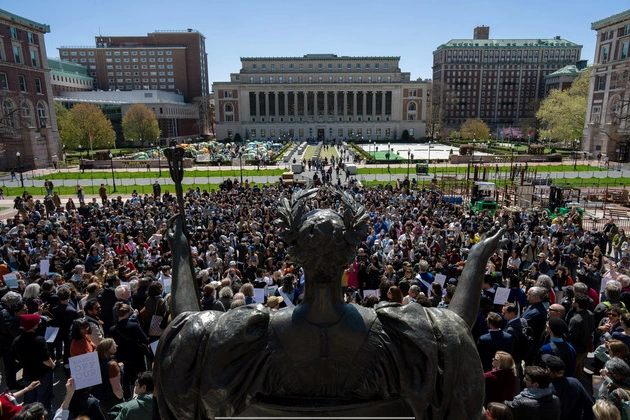
A recent crackdown by the Department of Homeland Security (DHS) has targeted pro-Palestinian protesters from Columbia University, resulting in arrests, visa revocations, and deportations. This action follows the high-profile arrest of a green card holder earlier in the week.
Arrests and Visa Revocations
Leqaa Kordia, a Palestinian activist from the West Bank, was arrested by local Immigration and Customs Enforcement authorities for allegedly overstaying her student visa. Her visa was terminated in 2022 due to ‘lack of attendance,’ according to DHS.
Another protester, Ranjani Srinivasan from India, who was studying for her doctorate at Columbia University on a student visa, voluntarily left the country after her student visa was revoked by the State Department. DHS accused her of ‘supporting Hamas, a terrorist organization.’
Deportations and Condemnations
The deportation of student protesters continued with the arrest of Mahmoud Khalil, a Palestinian activist facing deportation. This move drew condemnation from over 100 House Democrats, who criticized it as a violation of the First Amendment.
President Donald Trump expressed support for Khalil’s arrest, signaling a tougher stance on protesters advocating violence and terrorism. DHS Secretary Kristi Noem emphasized the privilege of living and studying in the U.S., stating that advocating violence should lead to visa revocation.
Call for Answers and Future Actions
The arrests and deportations of pro-Palestinian activists at Columbia University have raised questions about the legal basis for these actions. Democrats have demanded answers from DHS regarding the detention of protesters like Khalil, whose green card provides permanent residency.
As the crackdown on pro-Palestinian protesters continues, the DHS remains firm on its stance against advocating violence and terrorism within the country.











